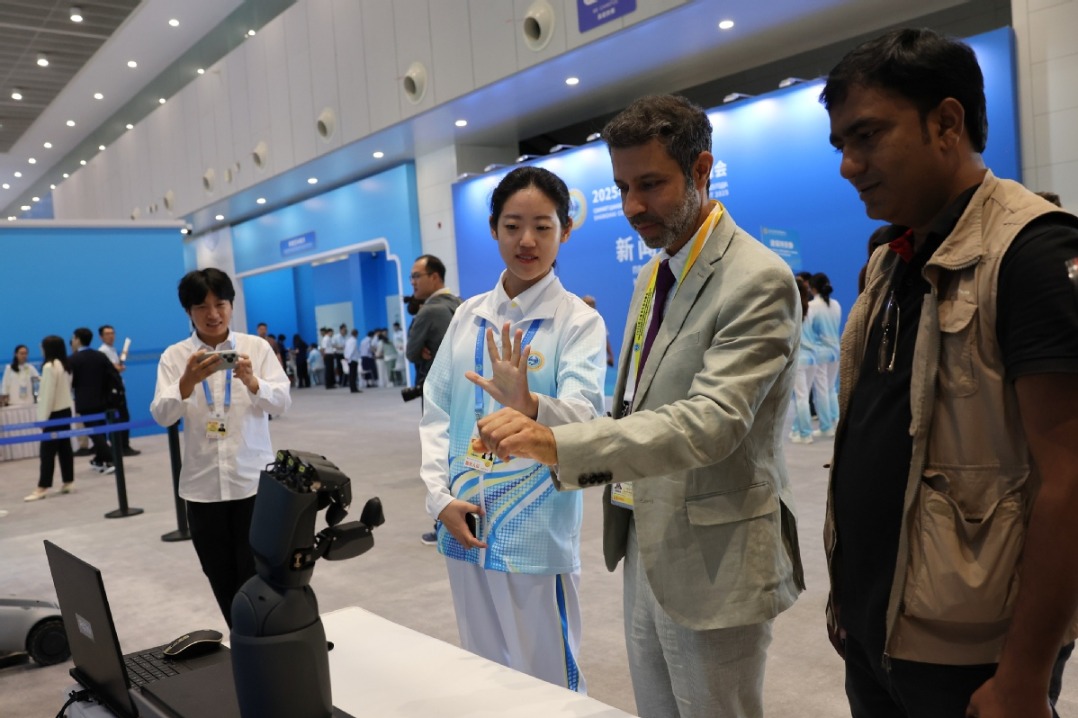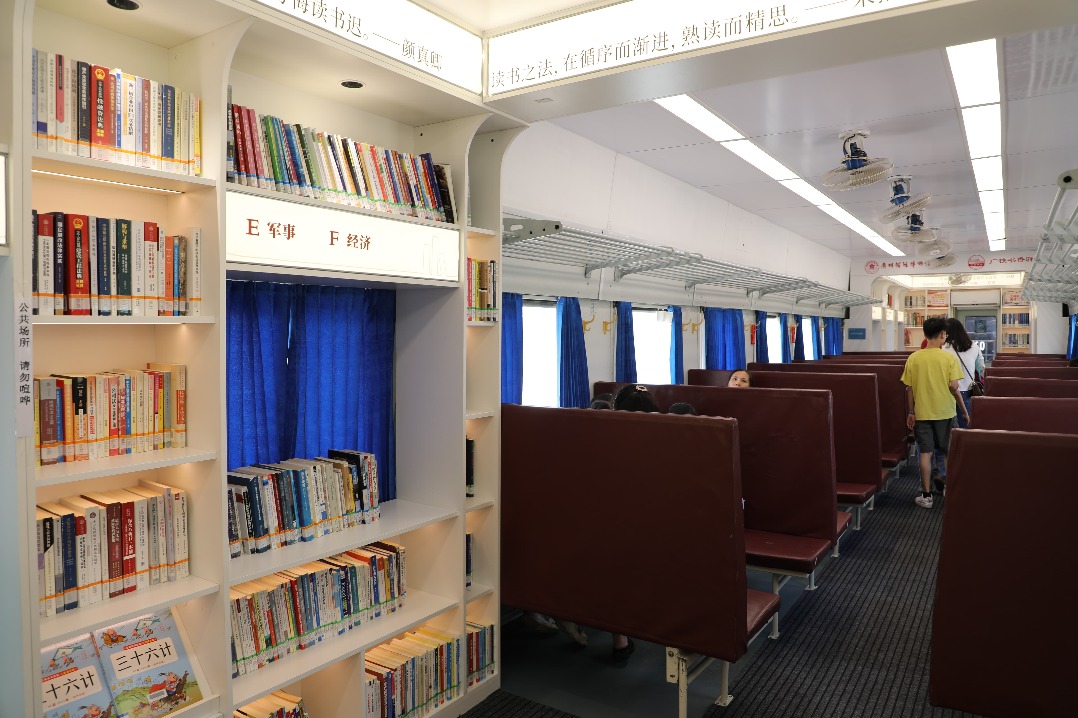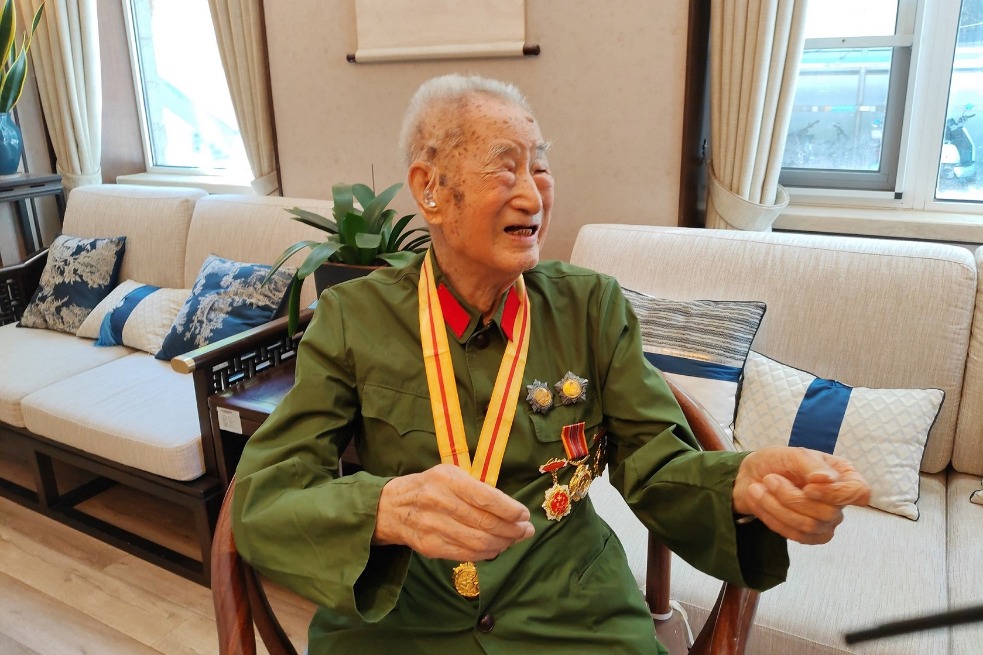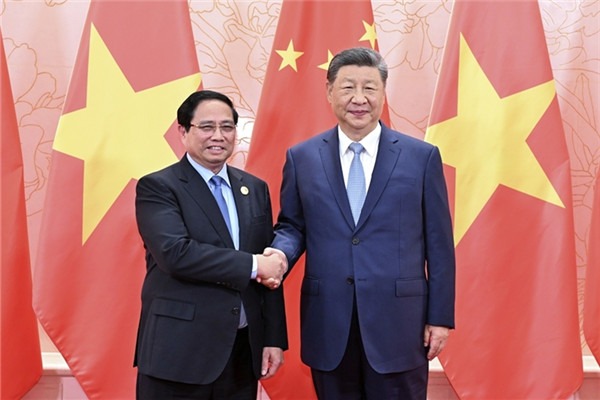Expert urges sticking with 'dynamic zero'

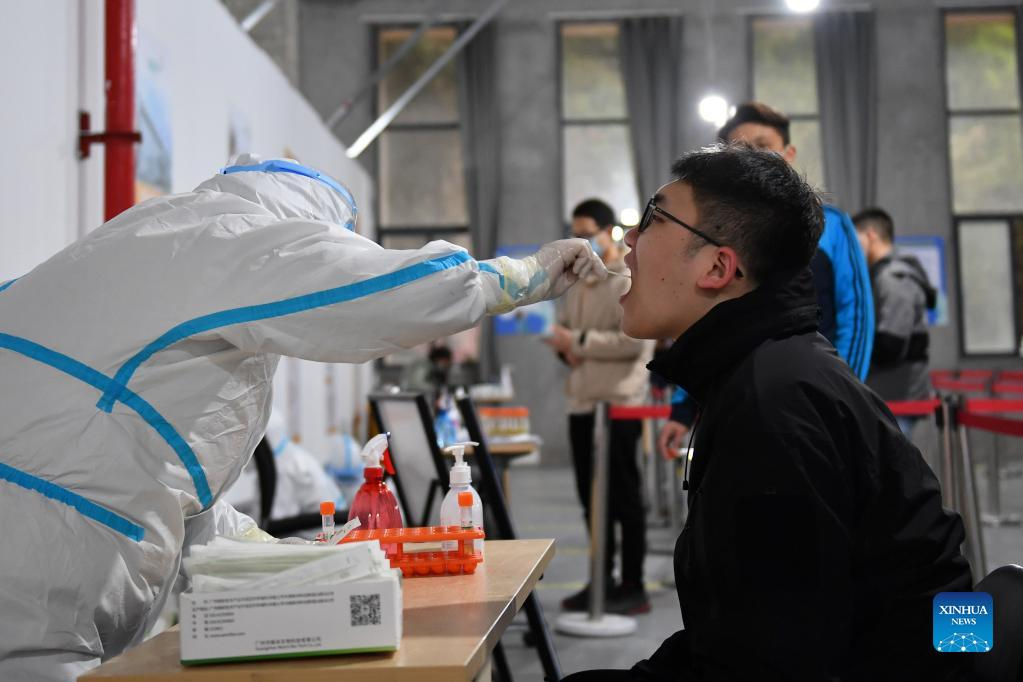
Coping with imported and domestic cases calls for continuation of policy
Faced with the pressure of imported cases of COVID-19 and spreading domestic outbreaks, China should stick to its dynamic zero-COVID policy, a leading health expert said on Tuesday.
Liang Wannian, head of the National Health Commission's COVID-19 leading task force, said the pandemic is still raging around the world and the situation in neighboring countries and regions is worsening, so China faces continued pressure to cope with imported cases.
On the other hand, domestic outbreaks and cluster infections are happening more frequently, which call for the continued implementation of the country's dynamic zero-COVID policy, he said at a news conference.
Compared with the Delta variant, Omicron has a lower death rate and produces fewer critical cases, but is more transmissible and can infect larger numbers of people, he said, meaning the sheer number of deaths and critical patients will also be greater.
The large number of asymptomatic and mild cases this time is the result of the new variant being milder, the high vaccination rate and effective epidemic containment measures, Liang said.
China is capable of implementing its dynamic zero-COVID policy due to effective control measures, a high vaccination rate, rapid nucleic acid testing and the understanding and support of its population, he added.
The country reported more than 41,000 local COVID-19 infections-both confirmed cases with symptoms and asymptomatic ones-in 28 provincial-level regions between March 1 and 21, said Lei Zhenglong, a senior official with the commission.
About 22,000 of those cases occurred in Northeast China's Jilin province, where the epidemic is still on the rise, he said.
With the repeated resurgence of COVID-19, China is facing a grim and complicated epidemic prevention and control situation, Lei said.
Liang said the recent outbreaks have reminded people of the need to overcome the lax implementation of epidemic containment measures and get rid of misunderstandings about the milder Omicron variant, such as considering it a more serious form of flu.
Omicron is not serious flu and is very dangerous to China's 1.4 billion people as the country has unbalanced medical resources in different regions and vulnerable groups have not finished COVID-19 vaccinations and booster shots, he said.
Some countries have relaxed or completely scrapped their containment measures, but China has a different epidemic containment mentality, in which the Chinese government and the Communist Party of China put people's lives as the top priority, he said.
An increased immunity level should not be based on immunity gained after infection, but through a higher vaccination rate, he said.
"If we stop all containment measures now, it means all the previous efforts are for nothing," Liang said.
No one can say for sure that the Omicron variant will be the last variant, he said. When the virus becomes milder, when there are more effective medications and vaccines, and when the pandemic situation improves globally, the country will adopt more appropriate measures to cope with the changed situation, he said.
For the time being, China still needs to stick with the policy of continued vaccination, targeted epidemic control and dynamic zero-COVID, Liang added.
Jiao Yahui, director of the commission's bureau of medical administration, said China has revised guidelines on COVID-19 nucleic acid testing from citywide testing to regionwide testing to make the process more targeted, quicker and more effective.
The guidelines now require that regional nucleic acid testing be completed within 24 hours to deal with the more evasive and transmissible Omicron variant, rather than the 48 or 72 hours previously stipulated, she said.
Jiao said the revisions are based on successful practices in places like Zhengzhou, Henan province, and Xi'an, Shaanxi province, where entire cities with populations of more than 12 million were tested within 24 hours.
Separately, the National Healthcare Security Administration has included antigen tests in medical insurance coverage as a temporary measure against the epidemic.
Local authorities should also cover the costs of newly added medicine in the latest revision of the diagnosis and treatment protocol for COVID-19 through medical insurance funds, the administration said in a notice issued on Monday.
- Closer ties highlighted for regional energy security
- Xinjiang's cotton irrigation technologies contribute to Central Asia's sustainable development
- Greater collaboration in AI high on agenda
- China's nanotechnology patents top the world: white paper
- Kyrgyzstan, China deepening strategic partnership in a new era
- SCO Summit: A shared vision for trust, equality and prosperity
















